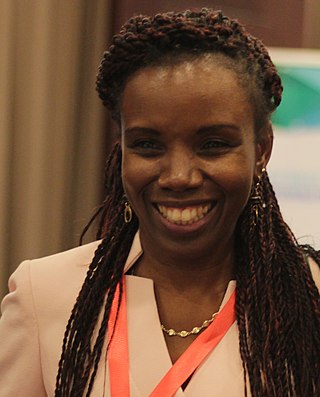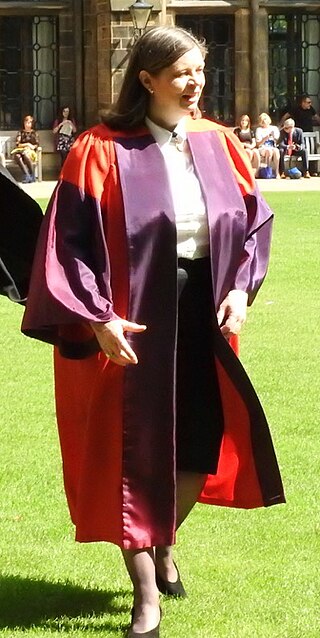
The Institution of Civil Engineers (ICE) is an independent professional association for civil engineers and a charitable body in the United Kingdom. Based in London, ICE has over 92,000 members, of whom three-quarters are located in the UK, while the rest are located in more than 150 other countries. The ICE aims to support the civil engineering profession by offering professional qualification, promoting education, maintaining professional ethics, and liaising with industry, academia and government. Under its commercial arm, it delivers training, recruitment, publishing and contract services. As a professional body, ICE aims to support and promote professional learning, managing professional ethics and safeguarding the status of engineers, and representing the interests of the profession in dealings with government, etc. It sets standards for membership of the body; works with industry and academia to progress engineering standards and advises on education and training curricula.

The Association for the Advancement of Artificial Intelligence (AAAI) is an international scientific society devoted to promote research in, and responsible use of, artificial intelligence. AAAI also aims to increase public understanding of artificial intelligence (AI), improve the teaching and training of AI practitioners, and provide guidance for research planners and funders concerning the importance and potential of current AI developments and future directions.

The British Computer Society (BCS), branded BCS, The Chartered Institute for IT, since 2009, is a professional body and a learned society that represents those working in information technology (IT) and computer science, both in the United Kingdom and internationally. Founded in 1957, BCS has played an important role in educating and nurturing IT professionals, computer scientists, computer engineers, upholding the profession, accrediting chartered IT professional status, and creating a global community active in promoting and furthering the field and practice of computing.

Eta Kappa Nu (ΗΚΝ) or IEEE-HKN is the international honor society of the Institute of Electrical and Electronics Engineers (IEEE). Joining HKN is by invitation only. Membership is a lifelong designation for individuals who have distinguished themselves as students or as professionals in electrical engineering, computer engineering, computer science, and other fields of IEEE interest.

The Institution of Engineering and Technology (IET) is a multidisciplinary professional engineering institution. The IET was formed in 2006 from two separate institutions: the Institution of Electrical Engineers (IEE), dating back to 1871, and the Institution of Incorporated Engineers (IIE) dating back to 1884. Its worldwide membership is currently in excess of 158,000 in 153 countries. The IET's main offices are in Savoy Place in London, England, and at Michael Faraday House in Stevenage, England.
Samuel Foster Hulbert was an American scientist working in Ceramics Science and Biomaterials. He carried out biomaterial work in artificial knees, hips, and dental prostheses. He served as president of Rose-Hulman Institute of Technology for 28 years. He was born at Adams Center, New York.
Chartered Chemist (CChem) is a chartered status awarded by the Royal Society of Chemistry (RSC) in the United Kingdom, the Royal Australian Chemical Institute (RACI) in Australia, by the Ministry of Education in Italy, the Institute of Chemistry Ceylon (IChemC), Sri Lanka, and the Institute of Chartered Chemists of Nigeria in Nigeria.
Engineering ethics is the field of system of moral principles that apply to the practice of engineering. The field examines and sets the obligations by engineers to society, to their clients, and to the profession. As a scholarly discipline, it is closely related to subjects such as the philosophy of science, the philosophy of engineering, and the ethics of technology.
In the United Kingdom, a Chartered Engineer (CEng) is an engineer registered with the UK's regulatory body for the engineering profession, the Engineering Council. Chartered Engineers are degree-qualified or can demonstrate equivalent work-based learning and have gained the appropriate professional competencies through education and working experience. Demonstration of competence is defined in the UK Standard for Professional Engineering Competence, assessed through professional review of academic qualifications and professional development. Formal, non-formal and informal learning can be assessed. The title Chartered Engineer is protected in the UK under law by means of the Engineering Council’s Royal Charter and Bye-laws. As of 2019 there are approximately 180,000 engineers registered as a Chartered Engineer. Chartered Engineers are registered through Professional Engineering Institutions (PEIs) licensed by the Engineering Council which are relevant to their industry or specialism.
A chartered professional is a person who has gained a specific level of skill or competence in a particular field of work, which has been recognised by the award of a formal credential by a relevant professional organization. Chartered status is considered a mark of professional competency, and is awarded mainly by chartered professional bodies and learned societies. Common in Britain, it is also used in Ireland, the United States and the Commonwealth, and has been adopted by organizations around the world.

Engineers Australia (EA) is an Australian professional body and not-for-profit organisation whose purpose is to advance the science and practice of engineering for the benefit of the community. Engineers Australia is Australia's recognized organization for accreditation of professional engineering qualifications under the Washington Accord. As of 2022, EA has 115,000 members, which includes 31,000 students.
The American Society of Tropical Medicine and Hygiene (ASTMH) is an Arlington, Virginia-based non-profit organization of scientists, clinicians, students and program professionals whose longstanding mission is to promote global health through the prevention and control of infectious and other diseases that disproportionately afflict the global poor. ASTMH members work in areas of research, health care and education that encompass laboratory science, international field studies, clinical care and country-wide programs of disease control. The current organization was formed in 1951 with the amalgamation of the American Society of Tropical Medicine, founded in 1903, and the National Malaria Society, founded in 1941.

The Indian Institution of Industrial Engineering (IIIE) is a non-profit organization and registered society for propagating the profession of Industrial Engineering in India. It was founded in 1957 and is a Registered Public Trust under the Bombay Public Trust Act, 1950.The headquarters is at Navi Mumbai. IIIE is a member organization of Engineering Council of India.
Fellowship of the Royal Society of Chemistry (FRSC) is an award conferred by the Royal Society of Chemistry (RSC) in the United Kingdom.
The Construction Management Association of America (CMAA) is a non-profit and non-governmental, professional association serving the construction management industry. The Association was formed in 1982. Current membership is more than 14,000, including individual CM/PM practitioners, corporate members, and construction owners in both public and private sectors, along with academic and associate members. CMAA has 29 regional chapters.

Tissue Engineering and Regenerative Medicine International Society is an international learned society dedicated to tissue engineering and regenerative medicine.
Prof. Robert Geoffrey "Geoff" Richards is the Executive Director Research & Development for the AO Foundation and director of AO Research Institute Davos at the AO Foundation. He is a Fellow of the Learned Society of Wales (FLSW), Fellow of Biomaterial Science and Engineering (FBSE), Fellow of International Orthopaedic Research (FIOR), Fellow of the Orthopaedic Research Society and honorary Fellow Aberystwyth University. He is co-Founder and Editor-in-Chief of the eCM Open Access Journal, arguably the first online open access journal in the world.

Elsie A. B. Effah Kaufmann is a Ghanaian academic, academic administrator, biomedical engineer and current host of the National Science and Maths Quiz. In December 2020, Elsie Kaufmann was appointed an associate professor at the University of Ghana, and was appointed the Dean of the School of Engineering Sciences on 1 August 2022.

Kathleen Elizabeth Tanner is the Bonfield Professor of Biomedical Materials at Queen Mary University of London. Her research focusses on developing materials with particular biological and mechanical properties for use medicine, particularly those used for bone replacement. Tanner developed HAPEX, a bone mineral composite biomaterial, which was used in over half a million middle ear transplants in the 1990s.
Li Hengde was a Chinese nuclear physicist and materials scientist who established China's first nuclear materials program at Tsinghua University. He was a founding academician of the Chinese Academy of Engineering, a Fellow of Biomaterials Science and Engineering (FBSE), and a Fellow of the Materials Research Society. He served as President of the Chinese Materials Research Society from 1991 to 1999 and as President of the International Union of Materials Research Societies (IUMRS) from 1999 to 2000.